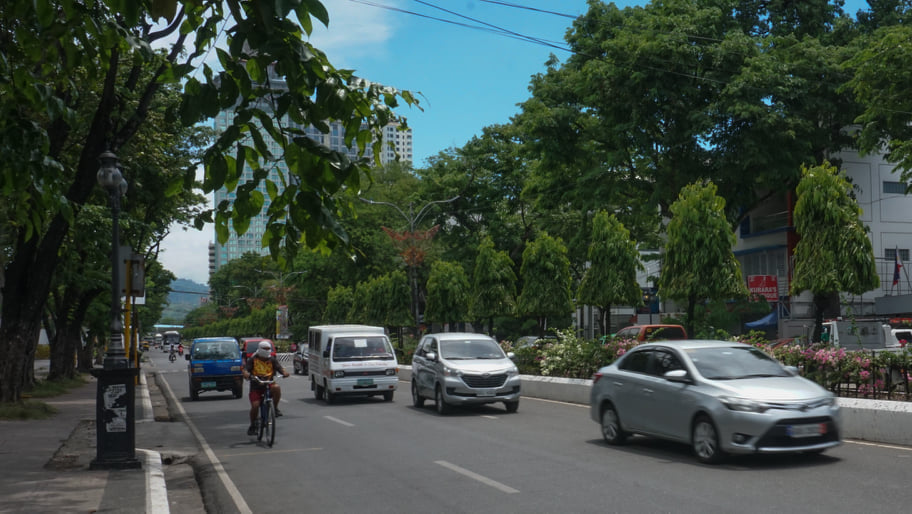
More vehicles can now be seen along Osmeña Boulevard in Cebu City two months after the implementation of the Enhanced Community Quarantine here. | CDND Photo
CEBU CITY, Philippines — Cebu City will already be placed under the General Community Quarantine (GCQ) starting on Monday, June 1, 2020.
The Office of the Presidential Assistant for the Visayas said that the Inter-Agency Task Force on Managing Emerging Infectious Diseases (IATF-MEID) has approved Mayor Edgardo Labella’s request for a GCG status in the city after a late-night meeting on Friday, May 29, 2020.
The IATF-MEID earlier announced that Cebu City would be placed under modified enhanced community quarantine (MECQ) starting June 1, 2020.
Read: IATF resolution makes Cebu City lone MECQ area until June 15
However, President Rodrigo Duterte said Thursday night that Metro Manila, Davao City, Cagayan Valley, Central Luzon, Calabarzon, Pangasinan, and Albay would be placed under GCQ while the rest of the country will be placed under modified general community quarantine (MGCQ).
Labella, who said that with the number of coronavirus disease cases here, MGCQ would be too lenient for the situation. He insisted on placing Cebu City under GCQ.
Read: Labella awaits IATF clarification on Cebu City’s quarantine status
Secretary Carlito Galvez Jr. lobbied for the reclassification of Cebu City after he was convinced of the outcome of the strategic antibody testing that is one of the components of the Project Balik Buhay of the cities of Cebu, Lapu-Lapu, and Mandaue.
But even if the city is placed under GCQ, the city government will still have the prerogative to place certain sitios or even barangays under enhanced community quarantine or even lockdown depending on the number of reported cases of the infection in these areas and the risk of community transmission.
The Department of Health (DOH) has recommended that Barangays Carreta, Sawang Calero, Bacayan, Mambaling, Labangon, Tejero, Luz be placed under ECQ due to the concentrated cases there while other areas in the city will already be under GCQ.
But while under GCQ, the following measures will still have to be implemented:
- Social distancing and wearing masks outside will continue.
- Senior citizens and those below 21 years old, those with immunodeficiency, comorbidities, or other health risks, and pregnant women will be required to stay home at all times unless for the provision of essential goods and services, or are allowed to work in permitted industries.
- Government work may be at full capacity depending on the guidelines of the Civil Service Commission (CSC).
- Some industries can begin to operate at full of half capacity depending on the industry category.
- Public transportation will run but can only load up to half capacity of passengers.
- Schools may adapt learning delivery options such as, but not limited to, face-to-face, blended learning, distance learning, homeschooling, and other modes of delivery. / dcb